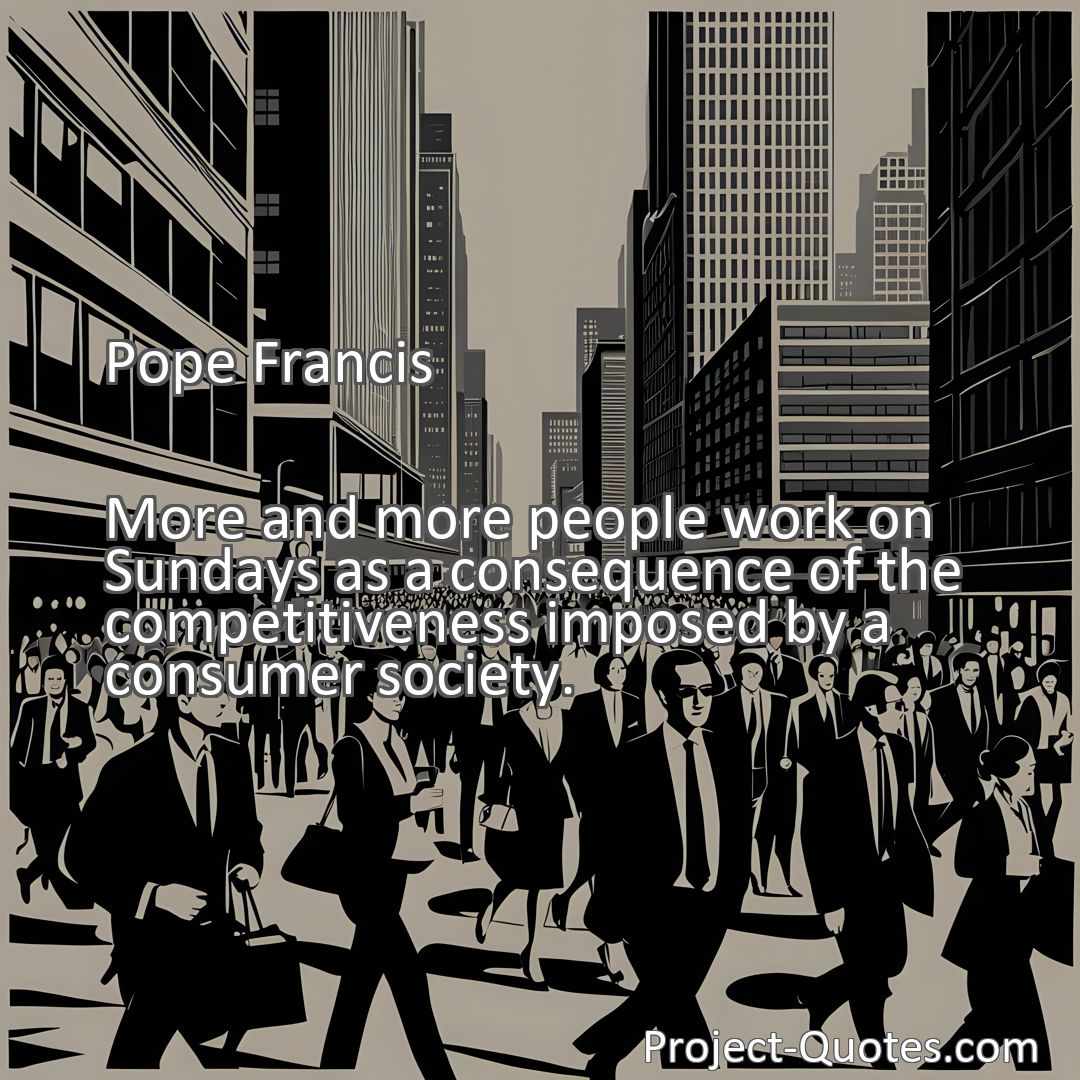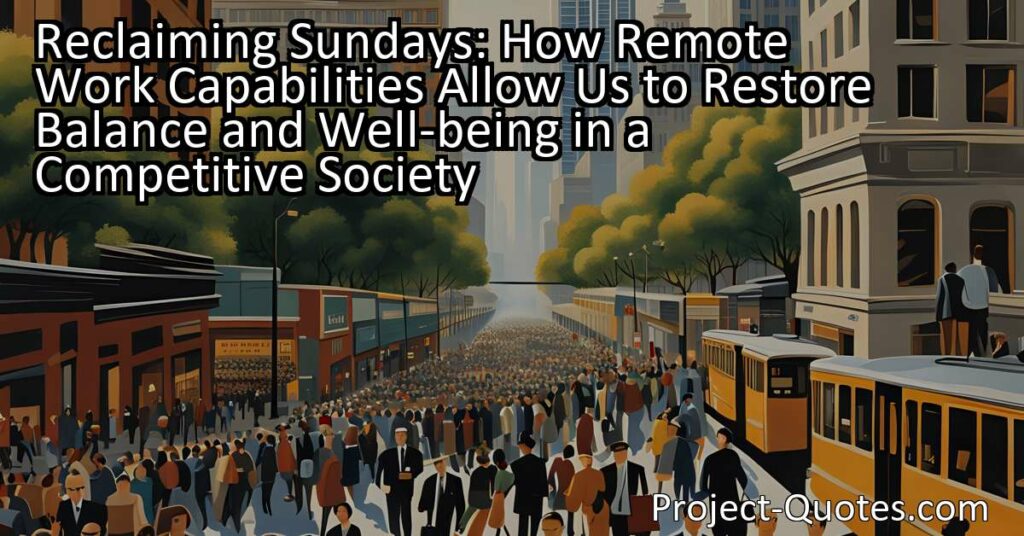More and more people work on Sundays as a consequence of the competitiveness imposed by a consumer society.
Pope Francis
Discover how remote work capabilities enable us to restore balance and well-being in our competitive society. With the rise of globalization and the pressure to constantly be productive, our personal time and well-being often take a backseat. By redefining success, setting boundaries, and prioritizing self-care, we can reclaim the importance of Sundays as a day of rest in our lives.
Table of Contents
Meaning of Quote – More and more people work on Sundays as a consequence of the competitiveness imposed by a consumer society.
In today’s fast-paced and consumer-driven society, the concept of a traditional day of rest seems to be fading away. The words of Pope Francis resonate with the changes we see in our own lives and the lives of those around us: “More and more people work on Sundays as a consequence of the competitiveness imposed by a consumer society.” These profound words highlight the detrimental impact that a relentless pursuit of material wealth and success can have on our lives and the erosion of a once sacred day of rest.
The relentless competitiveness depicted by Pope Francis is all too familiar. With the rise of globalization and the increased demand for goods and services, businesses constantly strive to outperform their competitors. This race for success often comes at a cost the blurring of boundaries between work and leisure time. In our fast-paced world, even Sundays, traditionally associated with rest and spiritual rejuvenation, have become just another day to meet quantifiable goals and satisfy consumer demands.
Why has this shift happened? One can argue that the consumer society’s pressure to constantly be productive and achieve more is a significant factor. As individuals, we find ourselves caught up in a never-ending cycle of working harder and longer, sacrificing our personal time and well-being for the sake of professional success. This pressure is further magnified by the fear of being left behind as new technologies and innovations continue to disrupt industries and redefine job markets.
Moreover, the normalization of working on Sundays has also been fueled by the convenience and accessibility provided by technology. The rise of the internet, smartphones, and remote work capabilities allows us to be constantly connected to our work even when we are physically away from it. Emails, video calls, and other digital platforms blur the boundaries between work and personal life, making it increasingly difficult to disconnect and truly enjoy uninterrupted leisure time.
However, the consequences of this relentless pursuit of competitiveness and the erosion of a designated day of rest are significant. Studies consistently show that overworking and a lack of downtime can lead to stress, burnout, and a decline in overall well-being. The impact is not only felt by individuals but also cascades into society as a whole. Relationships suffer, leisure activities become scarce, and the pursuit of personal growth and fulfillment takes a backseat to meeting work-related demands.
Furthermore, the loss of Sundays as a dedicated day of rest has profound implications for our spiritual and emotional well-being. Throughout history, Sundays have served as a time for religious observance, reflection, and connection with something greater than ourselves. By stripping away this sacred day, we risk losing touch with our inner selves, the communities we belong to, and the values that ground us. The consequence is the erosion of our true identity and a sense of disconnection from the world around us.
So, what can be done to reclaim the importance of Sundays as a day of rest in our increasingly competitive and consumer-driven society? Perhaps it begins with shifting our collective mindset, recognizing the value of rest and leisure, and prioritizing our well-being over productivity. This entails setting boundaries, both personally and professionally, and asserting the right to uninterrupted time for self-care, relaxation, and connection with loved ones.
Additionally, employers play a crucial role in reinstating the significance of Sundays as a day of rest. Implementing policies that encourage work-life balance, such as limiting work-related communication on weekends and promoting flexible hours, can create a more sustainable and fulfilling work environment. Moreover, it is vital for businesses to view their employees not only as valuable assets but also as whole individuals with personal lives and needs that extend beyond the workplace.
Lastly, as individuals, we must redefine our understanding of success and fulfillment. True wealth should not be solely measured by material possessions or professional achievements but rather by the quality of our relationships, our ability to take care of ourselves, and our capacity to find joy and meaning in the present moment. It is only by valuing these aspects of our lives that we can truly restore the sanctity of Sundays and preserve our own well-being in the face of societal pressures.
In conclusion, Pope Francis’s quote serves as a reminder of the consequences imposed by a consumer society that places competitiveness above all else. By reflecting on the erosion of Sundays as a day of rest in our lives, we are confronted with the need to redefine our priorities and reclaim the importance of balancing work and leisure. Only by doing so can we hope to foster a society that values our well-being, our connection to others, and our inner selves.
I hope this quote inspired image brings you hope and peace. Share it with someone who needs it today!


